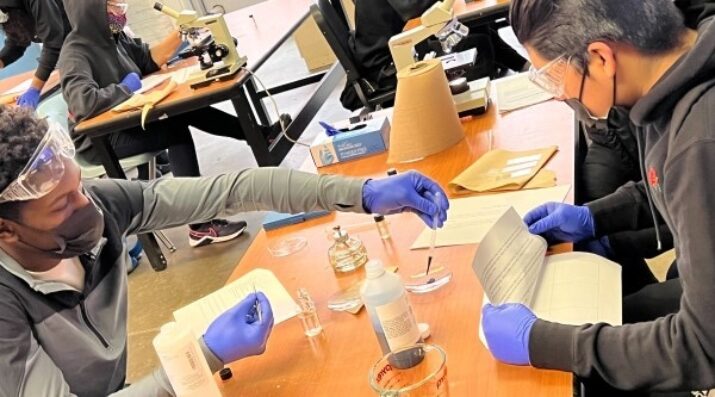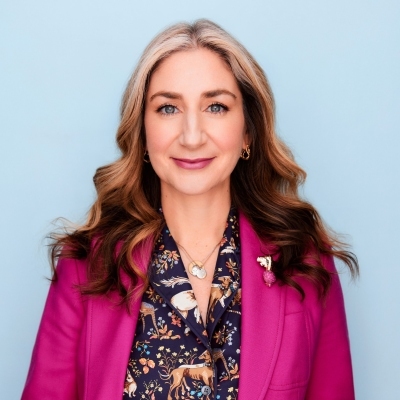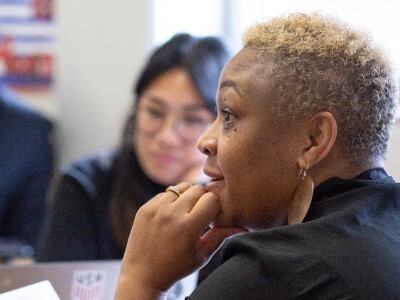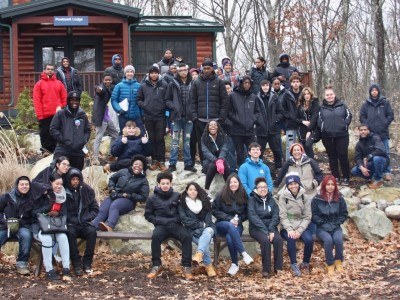Rooting Out Solutionitis by Getting to the Root of the Problem in Education
Topics

Next generation learning is all about everyone in the system—from students through teachers to policymakers—taking charge of their own learning, development, and work. That doesn’t happen by forcing change through mandates and compliance. It happens by creating the environment and the equity of opportunity for everyone in the system to do their best possible work.
Is the key to effective, enduring, and sustainable problem solving quickly identifying and operationalizing a solution or deeply understanding the problem?
I first heard the word “solutionitis” about ten years ago when I read Learning to Improve: How America’s Schools Can Get Better at Getting Better. I was an instructional and teacher leadership coach with the New York City Department of Education, and the term resonated deeply with me, both because of who I was as an educator (okay, as a person too) and what I had experienced with so many of the educators I’d worked with and coached.
Educators are solution-oriented people. We are professional problem solvers. All day every day, we answer questions, mediate conflict, piece together puzzles, and fix copy machines.
We do this because we understand the urgency of this work. We know that time is our most precious resource because we can’t make more of it. And so when we see a problem, we know that our students and their families and communities need a solution as soon as possible.
This is one reason it’s been such a joy and inspiration to be part of NGLC’s Bravely coaching team for The Workshop School in Philadelphia. Believe me when I say that the Workshop Bravely team is a group of solution-oriented people. They are expert problem solvers, and they have been reimagining, innovating, and troubleshooting since the school was founded in 2011.
Educators are solution-oriented people. We are professional problem solvers.
Over the past few months, I’ve noticed a distinct transformation in how the Workshop team—a small group that includes teachers, the principal, and one of the school’s co-founders—thinks about problem solving. Their team’s work centers on this Brave Question: How do we develop schoolwide academic expectations, build awareness of their progression, and acculturate staff to those expectations? Whereas earlier in the fall they were eager to jump to solutions and were sometimes gently redirected back to the problem by the coaching team, they have now reached a collective awareness that the key to effective, enduring, and sustainable problem solving is not in quickly identifying and operationalizing a solution. It is deeply understanding the problem.
This growth was on full display earlier this month during Workshop’s cross-district meeting with the Bravely team from Hinsdale School District in New Hampshire. Consider the following remarks from both the Workshop team’s presentation and the Hinsdale team’s feedback:
Part of the challenge Workshop has uncovered with their Brave Question is how well students and staff understand the skills and competencies that define their academic expectations:
“Realizing students don’t understand the skills and courses that encompass advisory”
“We’ve got these competencies in place, but how are they showing up?”
“Kids have not thought about tying skills to deliverables”
“Things feel disjointed to us so they are going to feel disjointed to kids”
“Advisory—expectations and climates vary greatly, we’re trying to build uniformity”
Another element the Workshop Bravely team is coming to understand more clearly is the way that exhibitions and grades clarify or muddle what the academic expectations are:
“Seeing exhibitions as a fabric of our school”
“How exhibitions are graded—they are essentially a graded slideshow vs. evidence [of what students have learned through their project]”
“The culminating work for a lot of the projects may or may not be tied to a skill. If there is not [a skill], that is a problem.”
The team also saw that the way they approached their Brave Question helped them better understand the problem:
“First, after the initial observations, we realized that the staff is on the same page in regards that there is a problem around our advisory courses”
“We are too focused on advisors [with our question]. So how can we address the students more?”
“We trusted the process”
“Inviting and empowering their stakeholders through the exhibition session which led to collaborative inquiry in what was missing”
“Defined the problem through the exhibition process”
This emphasis on taking the time needed to clearly define the problem and understand root causes is connected to the Transformation Design practice of Activate a Shared Purpose and the National Equity Project’s Liberatory Mindsets of Embrace Complexity and Work with Fear and Discomfort. By slowing down, unpacking the problem, asking hard questions, and supporting each other in their commitment to affecting real and sustainable change, the Workshop team is growing their capacity to transform what teaching and learning look like at their school.
Photo at top courtesy of Workshop School.




